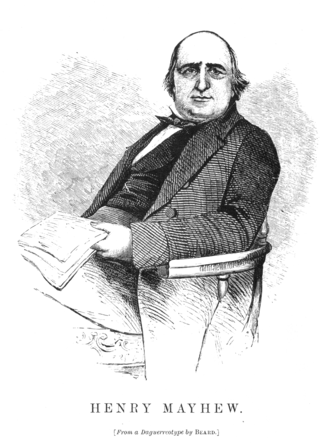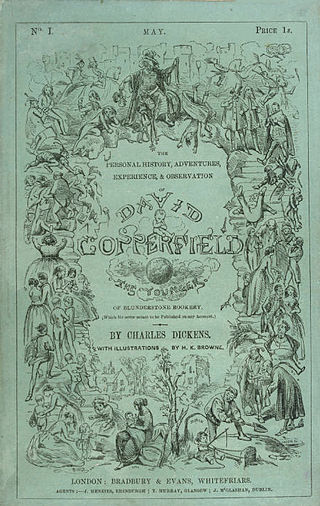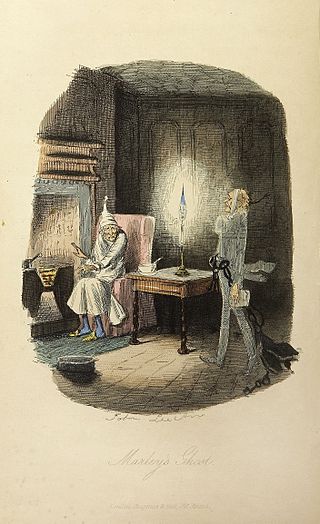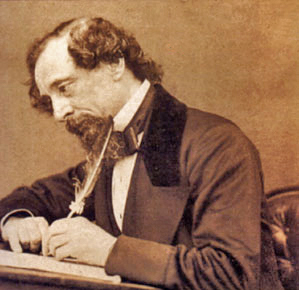Related Research Articles

Charles John Huffam Dickens was an English novelist, journalist, short story writer and social critic. He created some of literature's best-known fictional characters, and is regarded by many as the greatest novelist of the Victorian era. His works enjoyed unprecedented popularity during his lifetime and, by the 20th century, critics and scholars had recognised him as a literary genius. His novels and short stories are widely read today.

Henry Mayhew was an English journalist, playwright, and advocate of reform. He was one of the co-founders of the satirical magazine Punch in 1841, and was the magazine's joint editor, with Mark Lemon, in its early days. He is also known for his work as a social researcher, publishing an extensive series of newspaper articles in the Morning Chronicle that was later compiled into the three-volume book London Labour and the London Poor (1851), a groundbreaking and influential survey of the city's poor.

A letter is a written message conveyed from one person to another through a medium. Something epistolary means that it is a form of letter writing. The term usually excludes written material intended to be read in its original form by large numbers of people, such as newspapers and placards, although even these may include material in the form of an "open letter". The typical form of a letter for many centuries, and the archetypal concept even today, is a sheet of paper that is sent to a correspondent through a postal system. A letter can be formal or informal, depending on its audience and purpose. Besides being a means of communication and a store of information, letter writing has played a role in the reproduction of writing as an art throughout history. Letters have been sent since antiquity and are mentioned in the Iliad. Historians Herodotus and Thucydides mention and use letters in their writings.

An advance-fee scam is a form of fraud and is a common confidence trick. The scam typically involves promising the victim a significant share of a large sum of money, in return for a small up-front payment, which the fraudster claims will be used to obtain the large sum. If a victim makes the payment, the fraudster either invents a series of further fees for the victim to pay or simply disappears.

David Copperfield is a novel by English author Charles Dickens, narrated by the eponymous David Copperfield, detailing his adventures in his journey from infancy to maturity. As such, it is typically categorized in the bildungsroman genre. It was published as a serial in 1849 and 1850 and then as a book in 1850.

A Christmas Carol. In Prose. Being a Ghost Story of Christmas, commonly known as A Christmas Carol, is a novella by Charles Dickens, first published in London by Chapman & Hall in 1843 and illustrated by John Leech. It recounts the story of Ebenezer Scrooge, an elderly miser who is visited by the ghost of his former business partner Jacob Marley and the spirits of Christmas Past, Present and Yet to Come. In the process, Scrooge is transformed into a kinder, gentler man.

Ebenezer Scrooge is a fictional character and the protagonist of Charles Dickens's 1843 novel, A Christmas Carol. Initially a cold-hearted miser who despises Christmas, his redemption by visits from the ghost of Jacob Marley, the Ghost of Christmas Past, the Ghost of Christmas Present, and the Ghost of Christmas Yet to Come has become a defining tale of the Christmas holiday in the English-speaking world.

A masterpiece, magnum opus, or chef-d'œuvre is a creation that has been given much critical praise, especially one that is considered the greatest work of a person's career or a work of outstanding creativity, skill, profundity, or workmanship.
This article covers various hoax letter writers.
Harriet Lee was an English writer and novelist, born in London in 1757, and died near Bristol at Clifton, England, on August 1, 1851. Her father, John Lee, was an actor and theatrical manager who died in 1781, her mother, name unknown, was also an actress. Additionally, she was the sister of Sophia Lee (1750–1824), a notable dramatist.

Begging is the practice of imploring others to grant a favor, often a gift of money, with little or no expectation of reciprocation. A person doing such is called a beggar or panhandler. Beggars may operate in public places such as transport routes, urban parks, and markets. Besides money, they may also ask for food, drink, cigarettes or other small items.
Letter, letters, or literature may refer to:
A scam letter is a document, distributed electronically or otherwise, to a recipient misrepresenting the truth with the aim of gaining an advantage in a fraudulent manner.

Vagrancy is the condition of wandering homelessness without regular employment or income. Vagrants usually live in poverty and support themselves by travelling while engaging in begging, scavenging, or petty theft. In Western countries, vagrancy was historically a crime punishable with forced labor, military service, imprisonment, or confinement to dedicated labor houses.
From 1867 to 1974, various cities of the United States had unsightly beggar ordinances, retroactively named ugly laws. These laws targeted poor people and disabled people. For instance, in San Francisco a law of 1867 deemed it illegal for "any person, who is diseased, maimed, mutilated or deformed in any way, so as to be an unsightly or disgusting object, to expose himself or herself to public view." Exceptions to public exposure were acceptable only if the people were subjects of demonstration, to illustrate the separation of disabled from nondisabled and their need for reformation.

Silly Beggar – The World's Stupidest Begging Letters is a book by Scottish author James Spence. The book was published on 14 May 2009 by Aurora Metro, and is a collection of comedy begging letters sent to companies, together with the replies and images of items the sender received. Letters included in the book were sent to such companies as Shell, Hovis, Boots and Starbucks.

In scholarship, a secondary source is a document or recording that relates or discusses information originally presented elsewhere. A secondary source contrasts with a primary, or original, source of the information being discussed. A primary source can be a person with direct knowledge of a situation or it may be a document created by such a person.

A crossing sweeper was a person working as a street sweeper who would sweep a path ahead of people crossing dirty urban streets in exchange for a gratuity. This practice was an informal occupation among the urban poor, primarily during the 19th century. It was the focus of fairly intense study and commentary, and attitudes toward the presence of crossing sweepers on city streets varied greatly among urban residents, ranging from appreciation for their work to feelings that they were a public nuisance. Crossing sweepers also found their way into 19th-century fiction and artwork, including a novel by Charles Dickens and a popular painting by William Powell Frith.

The letters of Charles Dickens, of which more than 14,000 are known, range in date from about 1821, when Dickens was 9 years old, to 8 June 1870, the day before he died. They have been described as "invariably idiosyncratic, exuberant, vivid, and amusing…widely recognized as a significant body of work in themselves, part of the Dickens canon". They were written to family, friends, and the contributors to his literary periodicals, who included many of the leading writers of the day. Their letters to him were almost all burned by Dickens because of his horror at the thought of his private correspondence being laid open to public scrutiny. The reference edition of Dickens's letters is the 12-volume Pilgrim Edition, edited by Graham Storey et al. and published by Oxford University Press.
References
- ↑ Definition from MacMillan Dictionary online
- ↑ Pleas For Charitable Donations and Begging Letters From Nigerian 419 Fraud Scammers on the Crimes of Persuasion website
- ↑ "Cheeky Beggar". Daily Record. 29 Apr 2009. Archived from the original on 2 May 2009. Retrieved 29 April 2009.